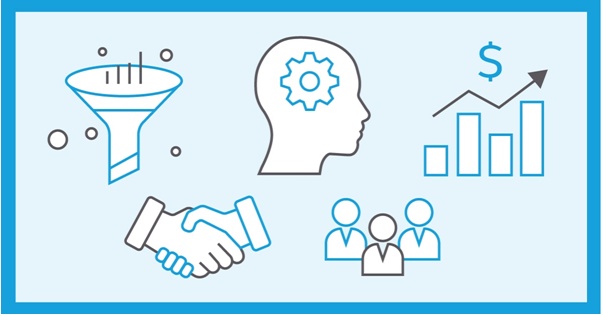As a business owner or salesperson, your ultimate goal is to close more deals with confidence. However, achieving this goal is not always easy, especially in a highly competitive marketplace. That's where sales pipelines come in. In this article, we'll explore what sales pipelines are, why they are critical for business success, and how you can create an effective sales pipeline to increase your sales and revenue.
What are Sales Pipelines?
A sales pipeline is a visual representation of the sales process that a business uses to convert leads into paying customers. It is essentially a step-by-step approach to moving a potential customer from the initial contact stage to the final stage of a successful sale. Sales pipelines help businesses to track their progress, identify the stages where leads are dropping off, and make necessary adjustments to improve their conversion rates.
Why are Sales Pipelines Critical for Business Success?
Sales pipelines are critical for business success for several reasons:
They provide a clear view of the sales process: By using a sales pipeline, businesses can see a clear picture of their sales process from start to finish. This helps to identify any potential bottlenecks or inefficiencies in the process and make necessary changes to improve performance.
They improve forecasting accuracy: Sales pipelines allow businesses to predict future sales revenue with greater accuracy. By tracking each stage of the sales process, businesses can estimate the likelihood of closing a deal and forecast their revenue accordingly.
They increase efficiency: Sales pipelines enable businesses to streamline their sales process by eliminating unnecessary steps and automating certain tasks. This helps to reduce the time it takes to close a deal and increase efficiency.
They help to prioritize leads: Sales pipelines help businesses to prioritize leads based on their level of engagement and likelihood of converting. This ensures that sales teams focus their efforts on the most promising leads and maximize their chances of success.
They enable better communication: Sales pipelines promote better communication between sales teams and other departments, such as marketing and customer service. This helps to ensure that everyone is on the same page and working towards the same goals.
How to Create an Effective Sales Pipeline
Creating an effective sales pipeline requires a strategic approach. Here are the steps you need to follow:
Define the stages of your sales:
Identify the key stages of your sales process and map out how you will move leads from one stage to the next. This might include stages such as lead generation, qualification, needs analysis, proposal, and closing.
Set goals for each stage:
Define the specific goals you want to achieve at each stage of the sales process. This might include goals such as the number of calls made, meetings scheduled, proposals sent, and deals closed.
Assign responsibilities:
Assign specific responsibilities to each member of your sales team for each stage of the sales process. This ensures that everyone knows what they need to do and when they need to do it.
Track and measure performance:
Use a CRM (Customer Relationship Management) system to track and measure your performance at each stage of the sales process. This will help you identify areas where you need to make improvements and make data-driven decisions.
Continuously improve: Use the data you collect to make improvements to your sales process. This might include refining your messaging, improving your sales scripts, or adjusting your pricing strategy.
Frequently Asked Questions (FAQs)
Q1. What is the difference between a sales pipeline and a sales funnel?
A1. A sales pipeline and a sales funnel are similar in that they both represent the sales process. However, a sales pipeline is more detailed and specific, while a sales funnel is a broader concept that focuses on the overall customer journey.
Q2. How can I ensure that my sales pipeline is effective?
A2. To ensure that your sales pipeline is effective, you should regularly review and update it. This means tracking your progress, measuring your performance, and making necessary adjustments. It also means staying up to date with industry trends, customer needs, and your competition. By keeping your sales pipeline current and relevant, you can increase your chances of closing more deals and growing your business.
Q3. Do I need a CRM system to create a sales pipeline?
A3. While a CRM system can be helpful for tracking and measuring your sales pipeline, it is not strictly necessary. You can create a sales pipeline using simple tools like spreadsheets or project management software. However, a CRM system can offer many benefits, such as automation, reporting, and data analysis, which can save you time and improve your results.
Q4. How long does it take to create a sales pipeline?
A4. The time it takes to create a sales pipeline depends on several factors, such as the size of your sales team, the complexity of your sales process, and the resources you have available. In general, it can take anywhere from a few days to a few weeks to create an effective sales pipeline.
Q5. Can I use the same sales pipeline for different products or services?
A5. While the basic structure of your sales pipeline can be the same for different products or services, you may need to make adjustments based on the specific needs of each offer. For example, a higher-priced product may require more time and effort to close a deal, while a low-priced product may have a shorter sales cycle. It's important to tailor your sales pipeline to the unique characteristics of each product or service you offer.
Conclusion about sales pipelines
Sales pipelines are critical for business success. They provide a clear view of the sales process, improve forecasting accuracy, increase efficiency, help to prioritize leads and enable better communication. By following the steps outlined in this article, you can create an effective sales pipeline that will help you close more deals with confidence. Your Digital Marketing Company will be able to assist in driving new leads into the sales pipeline. Remember to regularly review and update your sales pipeline to ensure that it remains relevant and effective. With the right approach and the right tools, you can achieve your sales goals and take your business to the next level.


No comments yet